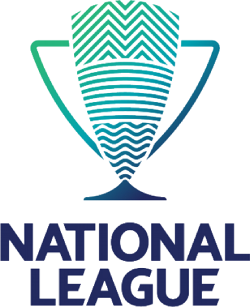
The OFC Men's Nations Cup is the primary association football competition contested by the senior men's national teams of the members of the Oceania Football Confederation (OFC), determining the continental champion of Oceania. The winning team became the champion of Oceania and until 2016 qualified for the FIFA Confederations Cup.

The Oceania Football Confederation (OFC) is one of the six continental confederations of international association football. The OFC has 13 members, 11 of which are full members and two which are associate members not affiliated with FIFA. It promotes the game in Oceania and allows the member nations to qualify for the FIFA World Cup.
The 2006 FIFA World Cup qualification competition was a series of tournaments organised by the six FIFA confederations. Each confederation – the AFC (Asia), CAF (Africa), CONCACAF, CONMEBOL, OFC (Oceania), and UEFA (Europe) – was allocated a certain number of the 32 places at the tournament. A total of 197 teams entered the qualification process for the 2006 FIFA World Cup. In 2001 FIFA ended automatic qualification of the reigning champion, so that 2002 champions Brazil became first to participate in the qualifying tournament. The hosts (Germany) retained their automatic spot.
The 2002 FIFA World Cup qualification competition was a series of tournaments organised by the six FIFA confederations. Each confederation — the AFC (Asia), CAF (Africa), CONCACAF, CONMEBOL, OFC (Oceania), and UEFA (Europe) — was allocated a certain number of the 32 places at the tournament. 199 teams entered the tournament qualification rounds, competing for 32 spots in the final tournament. South Korea and Japan, as the co-hosts, and France, as the defending champions, qualified automatically, leaving 29 spots open for competition.
The 1998 FIFA World Cup qualification competition was a series of tournaments organised by the six FIFA confederations. Each confederation — the AFC (Asia), CAF (Africa), CONCACAF, CONMEBOL, OFC (Oceania), and UEFA (Europe) — was allocated a certain number of the 32 places at the 1998 FIFA World Cup. 174 teams entered the qualification rounds, while two places were reserved for France and Brazil as host nation and defending champions, respectively.

The OFC Champions League is the premier men's club football competition in Oceania. It is organised by the OFC, Oceania's football governing body. Beginning as the Oceania Club Championship (1987–2006), it has been organised since 2007 under its current format.
The 2006 OFC Club Championship was the 5th edition of the top-level Oceanic club football tournament organized by the Oceania Football Confederation (OFC), and the last tournament before it was rebranded as the OFC Champions League. The qualifying round was held at Govind Park in Ba, Fiji, from 6 February until 10 February 2006, with the main competition taking place at the North Harbour Stadium in Albany, New Zealand from 10 May until 21 May 2006.
The 2010 FIFA World Cup qualification for the Oceania Football Confederation (OFC) selected New Zealand to compete in a two-legged home-and-away playoff against Bahrain, the fifth-place team from the Asian Football Confederation (AFC) for a spot in the 2010 FIFA World Cup in South Africa. Its final round was the 2008 OFC Nations Cup. Consequently, New Zealand is also considered the OFC Nations Cup champion, and represented the OFC in the 2009 FIFA Confederations Cup.
The Papua New Guinea National Club Championship is the top amateur division of soccer in Papua New Guinea. It is a nationwide league and was probably founded in 1976.

Hekari United, formerly known as POM Souths, Souths United, PRK Souths United and Hekari Souths United, is a professional soccer club formed in 2006, based in Port Moresby, Papua New Guinea.
The 2012 AFC Champions League was the 31st edition of the top-level Asian club football tournament organized by the Asian Football Confederation (AFC), and the 10th under the current AFC Champions League title.
The 2022 FIFA World Cup qualification was the qualifying process which decided the 31 teams that would join hosts Qatar, who received an automatic spot, at the 2022 FIFA World Cup.
Records of the Australian A-League Men clubs in continental club football competitions organised by the Asian Football Confederation. The Western Sydney Wanderers and Central Coast Mariners are the only Australian sides to have won an AFC competition, having won the AFC Champions League and AFC Cup respectively. While Adelaide United are the only other Australian side to have made a final. Melbourne Victory have the most tournament appearances in the AFC Champions League of any Australian club, with 9 appearances, and the most matches played of any Australian club, with 54 matches played.
Association football is one of the popular sports in Oceania, and 2 members of the Oceania Football Confederation (OFC) have competed at the sport's biggest event – the men's FIFA World Cup.
The 2018 OFC Champions League was the 17th edition of the Oceanian Club Championship, Oceania's premier club football tournament organized by the Oceania Football Confederation (OFC) and the 12th season under the current OFC Champions League name.
The 2020 OFC Champions League was the 19th edition of the Oceanian Club Championship, Oceania's premier club football tournament organized by the Oceania Football Confederation (OFC), and the 14th season under the current OFC Champions League name.

University Inter, founded as ANZ University and formerly known also as ICF University, and, simply, University, is the oldest known semi-professional club soccer club in Papua New Guinea, founded in 1969. It is the soccer club on the campus of the University of Papua New Guinea, based in Port Moresby.

The New Zealand Men's National League is a men's football league at the top of the New Zealand football league system. Founded in 2021, the New Zealand National League is the successor to the New Zealand Football Championship. The league is contested by ten teams, with teams qualifying from their regional leagues. Four teams qualify from the Northern League, three qualify from the Central League, two qualify from the newly formed Southern League and the Wellington Phoenix Reserves are automatically given a spot each year.





